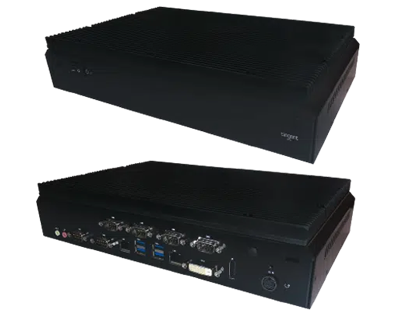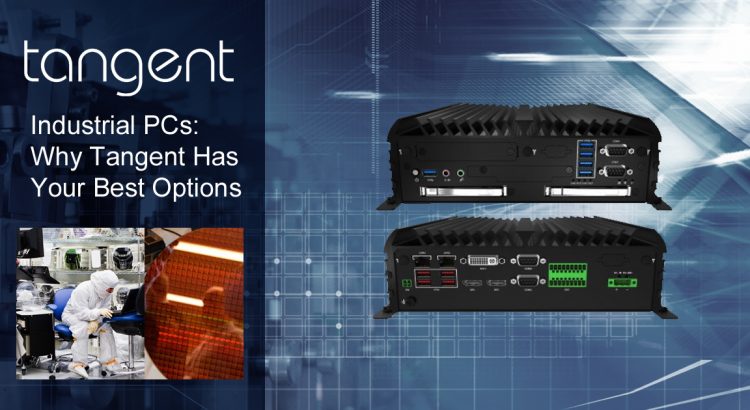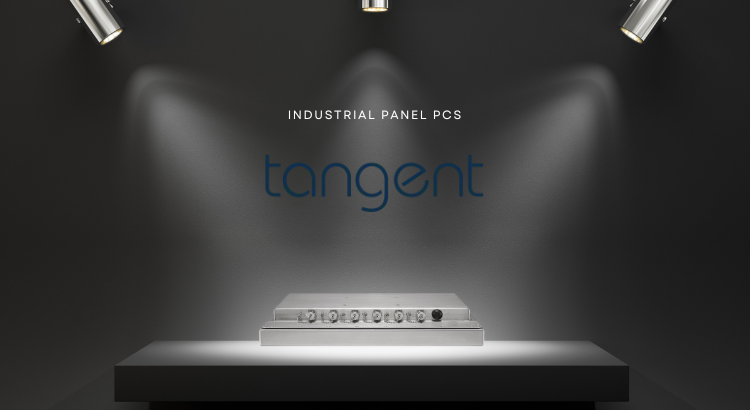Tangent brings you cutting-edge industrial panel PC solutions designed for the most demanding Industrial IoT and edge computing environments. Our industrial computers are engineered to enhance reliability and prevent failures, ensuring peace of mind for your critical operations. With a range of space-efficient form factors, our industrial panel PCs are ideal for installations with limited […]
Tag: industrial pcs
How Industrial PCs are Revolutionizing Industrial Automation
Industrial automation has come a long way in recent years, and the rise of industrial PCs has played a significant role in this revolution. Industrial PCs are used to control and monitor a wide range of manufacturing processes, from assembly lines to robotic systems. In this blog, we will discuss how industrial PCs are revolutionizing industrial automation. […]
Choosing the Right Industrial PC for Your Manufacturing Needs
Manufacturing processes have become increasingly reliant on technology, and industrial PCs have become an essential component of these processes. However, selecting the right industrial PC for your manufacturing needs can be a daunting task. In this blog, we will discuss the factors you need to consider when choosing the right industrial PC for your manufacturing […]
Industrial PCs for Clean Room Applications
Clean rooms are critical environments used in industries like pharmaceuticals, biotech, and semiconductor manufacturing to maintain a controlled environment free of airborne contaminants. The stringent requirements for clean room environments make it necessary to use specialized equipment that can operate without causing contamination. Industrial PCs are an essential component in clean room applications, offering a […]
Clean Rooms and Industrial PCs: A Perfect Pairing
Clean rooms are critical environments that require specialized equipment to maintain a contamination-free environment. Industrial PCs are a perfect pairing for clean room applications, providing reliable and efficient solutions for controlling processes and data management. The strict cleanliness requirements of clean rooms make it necessary to use specialized equipment that can operate without causing contamination. […]
Industrial PCs Necessary for Clean Rooms
Clean rooms are critical environments used in industries like pharmaceuticals, biotech, and semiconductor manufacturing to maintain a controlled environment free of airborne contaminants. The stringent requirements for clean room environments make it necessary to use specialized equipment that can operate without causing contamination. Industrial PCs are a necessary component in clean room applications, offering reliable […]
Industrial PCs Versus Military PCs
Industrial PCs and military PCs are both specialized types of computers that are designed to operate in harsh environments and demanding conditions. But what exactly sets these two types of PCs apart? How do they differ in terms of performance, durability, and functionality? Industrial PCs are designed to operate in industrial environments, such as factories, […]
Why Industrial PCs Do Not Require Maintenance
It’s a common misconception that industrial PCs are similar to conventional PCs, but that’s not true. While conventional PCs come pre-made, industrial PCs are assembled from the ground up by the factories or industries using them. Industrial PCs are modified for industrial operations, available in different sizes, and used in high temperatures, dusty areas, and […]

What is meant by Industrial PC?
Industrial PC a computer for industrial application. Industrial purposes such as production of services or goods. Industrial PCs have greater reliability and industry standards and typically cost more than consumer grade computers.

Industrial PCs: Why Tangent Has Your Best Options
Bottlenecks in shipping have affected consumers and producers alike. With current trends, the supply chain crisis is unlikely to resolve in the near term. Everything from cars to computers is facing delays in production in one form or another. During times like these, companies across all sectors need reliable tools that they can depend on. […]
